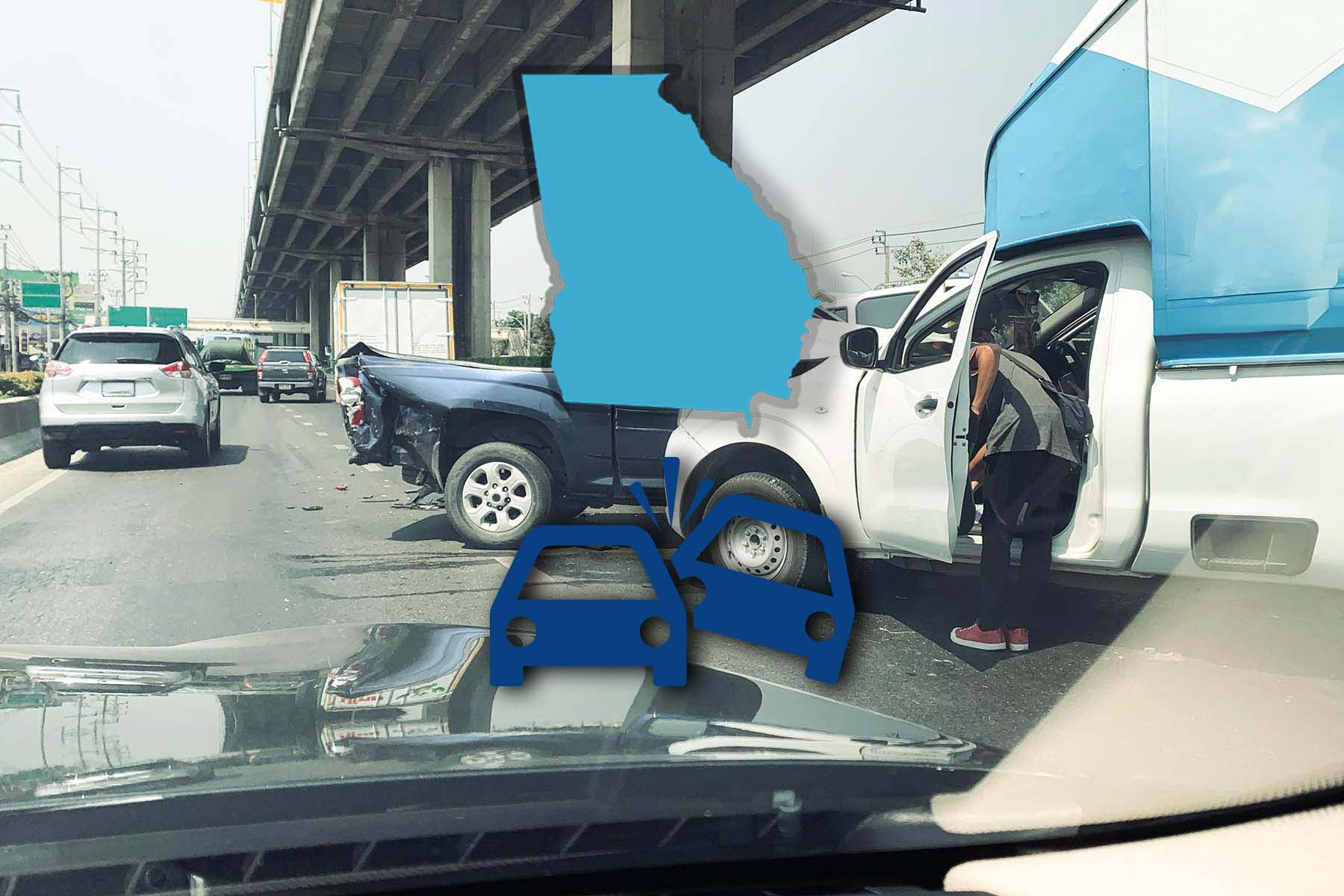
Last verified: January 2026. This guide reflects O.C.G.A. Title 40, Chapter 6, Article 8.
📑 Table of Contents (click to expand)
Quick Summary
Under Georgia law, leaving the scene of an accident without stopping, identifying yourself, and rendering assistance is a criminal offense. Penalties range from misdemeanor fines to felony imprisonment depending on the severity of the incident.
- Unattended vehicle or property damage: Misdemeanor, up to 12 months in jail, $300 to $1,000 fine
- Injury or death: Felony, 1 to 5 years imprisonment
- License suspension: Mandatory for all vehicle-related felonies
- Duty to aid: You must render reasonable assistance to anyone injured
- “Nolo contendere” plea: Counts as a conviction in Georgia
References:
- O.C.G.A. § 40-6-270: Duty of driver to stop at or return to scene of accident
- O.C.G.A. § 40-6-271: Striking unattended vehicle
- O.C.G.A. § 40-5-54: Mandatory suspension for vehicle-related felonies
Georgia Hit and Run Penalties
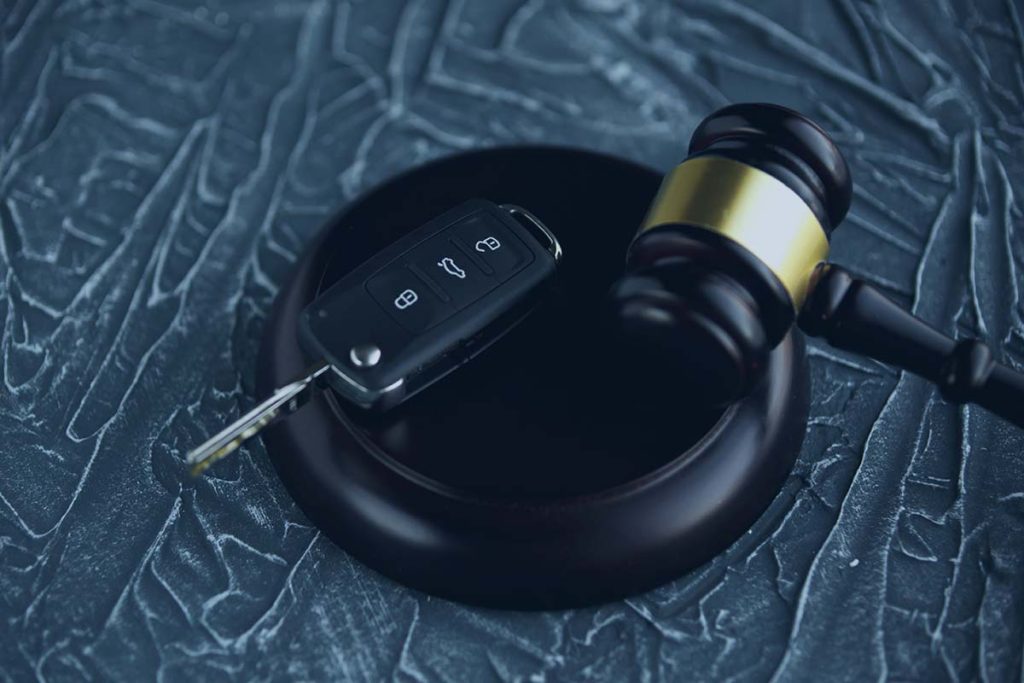
Striking an Unattended Vehicle or Property (O.C.G.A. § 40-6-271)
If you hit a parked or unattended vehicle and leave without proper notice, you face:
- Classification: Misdemeanor
- Jail: Up to 12 months
- Fine: $300 to $1,000
- Repeat offenders: Penalties increase with prior convictions
Injury or Death (O.C.G.A. § 40-6-270(b))
Fleeing an accident that results in injury or death to any person is a felony:
- Imprisonment: 1 to 5 years
- License suspension: Mandatory, as determined by the Department of Driver Services
- Additional charges possible: Vehicular homicide, manslaughter, DUI, eluding police
Note: The court may allow fine payments in installments if lump-sum payment would cause economic hardship.
Your Legal Duties After an Accident
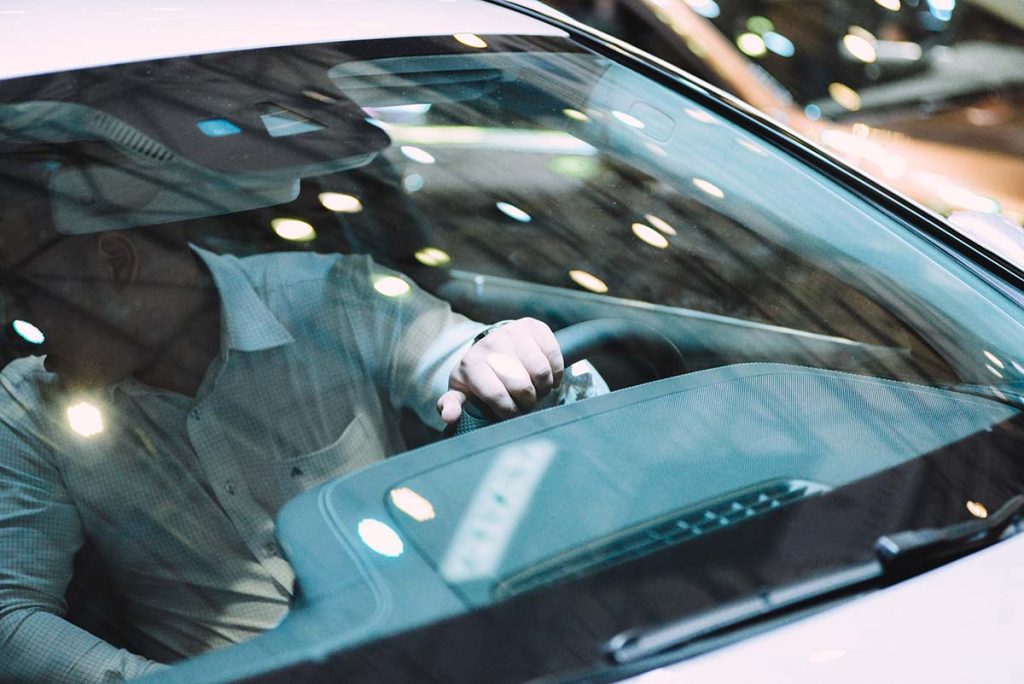
Georgia law requires every driver involved in an accident to:
- Stop immediately at the scene or as close as possible without obstructing traffic more than necessary
- Remain at the scene until you have fulfilled all legal requirements or until cleared by law enforcement
- Provide your information to the other driver, property owner, or law enforcement:
- Name and address
- Vehicle registration number
- Driver’s license (upon request)
- Render reasonable assistance to anyone injured, including arranging transportation to a hospital
- Call law enforcement and emergency services if the victim appears deceased, unconscious, or unable to communicate
Striking Unattended Vehicles (O.C.G.A. § 40-6-271)
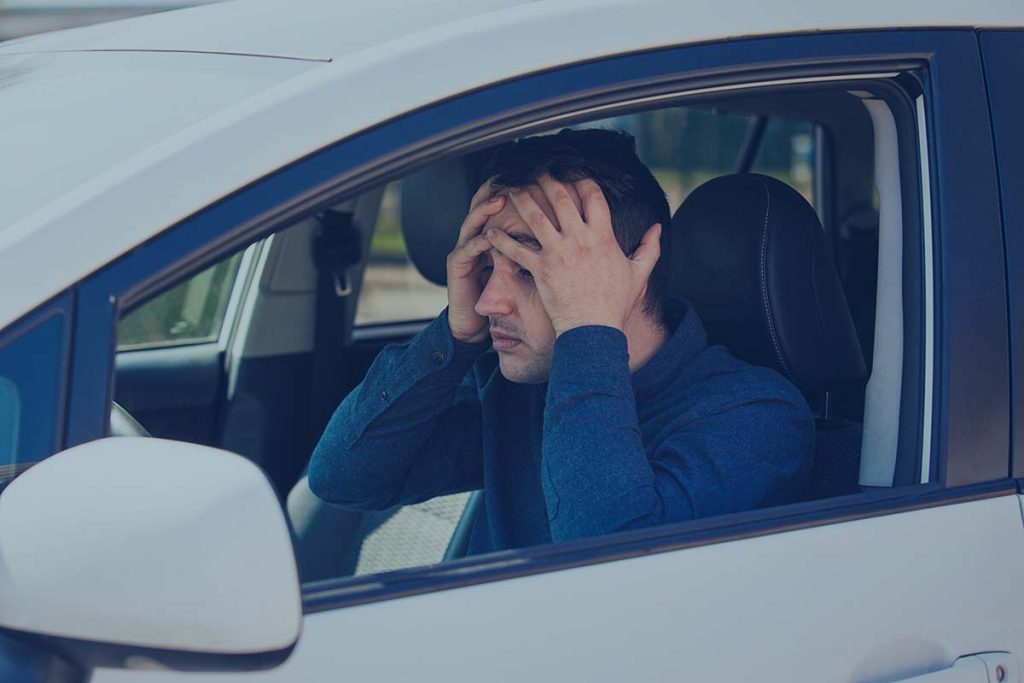
If you hit an unattended vehicle or property, you must:
- Attempt to locate the owner and notify them of the accident
- If unsuccessful, leave a written note in a conspicuous place on the vehicle containing:
- Your name
- Your address
- Your contact information
- Report the incident to the nearest police station
“The driver of any vehicle which collides with any vehicle which is unattended shall immediately stop and shall then and there either locate and notify the operator or owner of such vehicle of the name and address of the driver and owner of the vehicle striking the unattended vehicle or shall leave in a conspicuous place on the vehicle struck a written notice giving the name and address of the driver and the owner of the vehicle doing the striking.” — O.C.G.A. § 40-6-271
When Does Hit and Run Become a Felony?
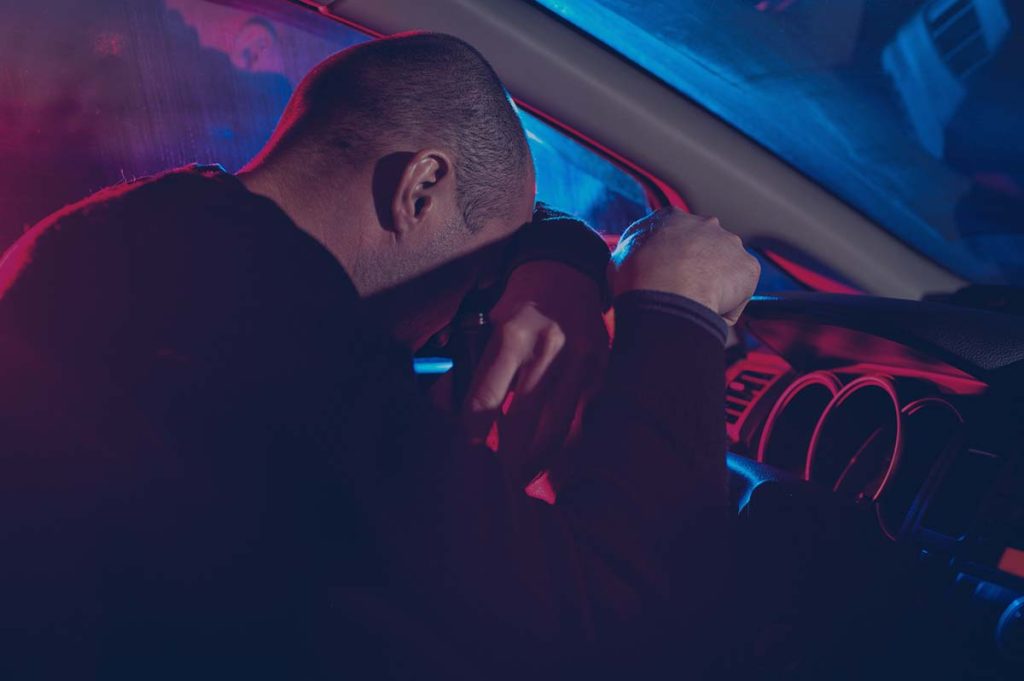
A hit and run in Georgia becomes a felony when:
- Any person is injured
- Any person dies
- The driver was intoxicated (DUI)
- The act was intentional
Prosecutors may pursue additional felony charges including:
- Vehicular homicide
- Vehicular manslaughter (first degree or second degree)
- DUI causing serious injury or death
- Fleeing or attempting to elude police
- Reckless driving
Mandatory License Suspension (O.C.G.A. § 40-5-54)
Georgia mandates license suspension or revocation for conviction of any vehicle-related felony. This includes:
- Hit and run with injury or death
- Racing on highways
- Fleeing or attempting to elude police
- Vehicular homicide
The judge gives notice of suspension at sentencing, and the court forwards your license to the Department of Driver Services within 10 days. The department determines the length of suspension based on the offense.
Georgia Traffic Crash Statistics
According to the Insurance Institute for Highway Safety (IIHS) and NHTSA data for 2023:
- Total traffic deaths: 1,615
- Death rate: 14.6 per 100,000 population
- Deaths per 100 million vehicle miles: 1.28
- Car occupant deaths: 508 (31%)
- Pickup and SUV occupant deaths: 488 (30%)
- Pedestrian deaths: 310 (19%)
- Motorcyclist deaths: 196 (12%)
- Bicyclist deaths: 23 (1%)
- Urban vs. rural: 65% urban, 35% rural
- Single-vehicle crashes: 54%
- Restraint use among fatalities: 42% were restrained
Georgia’s relatively high pedestrian death rate underscores the importance of stopping to render aid after any accident involving a person on foot.
Juvenile Offenders
Minors in Georgia may face serious consequences for hit and run. Depending on the circumstances, a juvenile may be:
- Processed through the juvenile court system for less serious offenses
- Tried as an adult for offenses that would be felonies if committed by an adult, such as vehicular homicide or hit and run causing death
If convicted as an adult, the teen faces adult penalties including prison time. Parents should contact a defense attorney immediately if a minor is involved in a hit and run.
Statute of Limitations
In Georgia:
- Personal injury claims: 2 years from the date of the accident
- Property damage claims: 4 years from the date of the accident
- Minor victims: The countdown begins when the victim turns 18
To pursue a claim, you must prove your case beyond a reasonable doubt. Collect evidence at the scene and keep all medical records.
Common Hit and Run Defenses
Defenses depend on the specific facts of your case. Common arguments include:
- Lack of knowledge: You did not know you were involved in an accident
- Involuntary departure: You did not leave the scene voluntarily
- Safety concerns: You left because you feared for your safety (the other party acted aggressively or brandished a weapon)
- No injury or damage: The victim did not actually suffer injury or property damage
- Medical emergency: You left the scene to seek medical assistance for yourself or the victim
- Compliance: You fulfilled all legal requirements before leaving and reported the incident to law enforcement
Important: Prosecutors and the other party may use police records to prove fault. Watch what you say at the scene. Do not admit fault. If unsure what to say, wait until you speak with an attorney.
Frequently Asked Questions
What should I do if someone hits my car and drives off in Georgia?
Call the police immediately. Gather as much information as possible: the fleeing vehicle’s make, model, color, license plate, and the driver’s description. Get contact information from witnesses. Do not chase the fleeing driver. Contact your insurance company and consider consulting an attorney.
Should I admit fault after an accident?
No. Admitting fault at the scene can affect your eligibility for compensation and increase your insurance premiums. Let investigators determine who was at fault. Avoid saying things like “I’m sorry, it was my fault.” Simply provide your side of the story without incriminating yourself.
What happens if I plead “no contest” to a hit and run in Georgia?
A plea of “nolo contendere” (no contest) constitutes a conviction in Georgia for purposes of sentencing and license suspension. You will face the same penalties as a guilty plea.
How long will my license be suspended?
The Department of Driver Services determines the suspension period based on the offense. For felony hit and run (injury or death), suspension periods are typically lengthy. The court does not set the specific duration; that is left to the department.
Can I avoid jail time for a hit and run?
It depends on the circumstances. For misdemeanor offenses (property damage only), judges have discretion on sentencing. For felonies, imprisonment of 1 to 5 years is mandated by statute. An experienced defense attorney may be able to negotiate reduced charges or alternative sentencing.